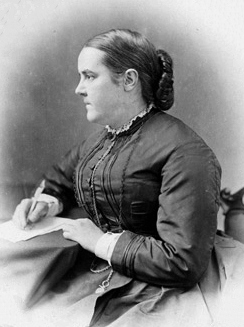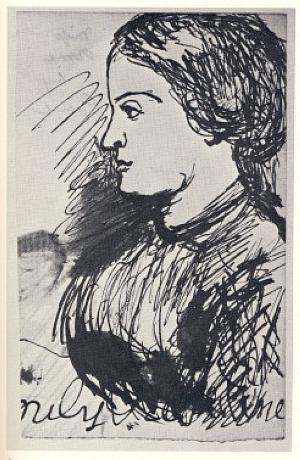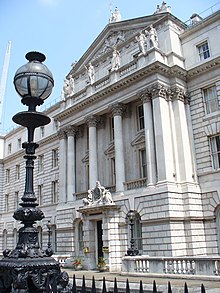
Elizabeth Garrett Anderson was an English physician and suffragist. She is known for being the first woman to qualify in Britain as a physician and surgeon and as a co-founder and dean of the London School of Medicine for Women, which was the first medical school in Britain to train women as doctors. She was the first female dean of a British medical school, the first woman in Britain to be elected to a school board and, as mayor of Aldeburgh, the first female mayor in Britain.
The Japanese-Language Proficiency Test, or JLPT, is a standardized criterion-referenced test to evaluate and certify Japanese language proficiency for non-native speakers, covering language knowledge, reading ability, and listening ability. The test is held twice a year in Japan and selected countries, and once a year in other regions. The JLPT is conducted by the Japan Foundation for tests overseas, and Japan Educational Exchanges and Services for tests in Japan.
The General Certificate of Education (GCE) is a subject-specific family of academic qualifications used in awarding bodies in England, Wales, Northern Ireland, Crown dependencies and a few Commonwealth countries. For some time, the Scottish education system has been different from those in the other countries of the United Kingdom.

Bedford College was founded in London in 1849 as the first higher education college for women in the United Kingdom. In 1900, it became a constituent of the University of London. Having played a leading role in the advancement of women in higher education and public life in general, it became fully coeducational in the 1960s. In 1985, Bedford College merged with Royal Holloway College, another constituent of the University of London, to form Royal Holloway and Bedford New College. This remains the official name, but it is commonly called Royal Holloway, University of London (RHUL).
Cambridge Assessment English or Cambridge English develops and produces Cambridge English Qualifications and the International English Language Testing System (IELTS). The organisation contributed to the development of the Common European Framework of Reference for Languages (CEFR), the standard used around the world to benchmark language skills, and its qualifications and tests are aligned with CEFR levels.
Project Management Professional (PMP) is an internationally recognized professional designation offered by the Project Management Institute (PMI). As of 31 July 2020, there are 1,036,368 active PMP-certified individuals and 314 chartered chapters across 214 countries and territories worldwide.

The Edinburgh Seven were the first group of matriculated undergraduate female students at any British university. They began studying medicine at the University of Edinburgh in 1869 and, although the Court of Session ruled that they should never have been admitted, and they did not graduate or qualify as doctors, the campaign they fought gained national attention and won them many supporters, including Charles Darwin. Their campaign put the demands of women for a university education on the national political agenda, and eventually resulted in legislation to ensure that women could be licensed to practice medicine in 1876.
An admission to practice law is acquired when a lawyer receives a license to practice law. In jurisdictions with two types of lawyer, as with barristers and solicitors, barristers must gain admission to the bar whereas for solicitors there are distinct practising certificates.
The TestDaF, formally Test Deutsch als Fremdsprache, is a standardised language test of German proficiency for non-native German speakers. It aims at people who would like to study at, or academics and scientists who want to work in, German universities. The test is run by the TestDaF-Institut.
C2 Proficiency, previously known as Cambridge English: Proficiency and the Certificate of Proficiency in English (CPE), is an English language examination provided by Cambridge Assessment English (previously known as Cambridge English Language Assessment and University of Cambridge ESOL examination).
B2 First, previously known as Cambridge English: First and the First Certificate in English (FCE), is an English language examination provided by Cambridge Assessment English (previously known as Cambridge English Language Assessment and the University of Cambridge ESOL examinations).

Louise Hume Creighton was a British author of books on historical and sociopolitical topics, and an activist for a greater representation of women in society, including women's suffrage, and in the Church of England.

An examination or test is an educational assessment intended to measure a test-taker's knowledge, skill, aptitude, physical fitness, or classification in many other topics. A test may be administered verbally, on paper, on a computer, or in a predetermined area that requires a test taker to demonstrate or perform a set of skills.
The Certificate Examinations in Polish as a Foreign Language, also referred as State Certificate Examinations in Polish as a Foreign Language, are standardized tests of Polish language proficiency for non-native Polish speakers. The examinations are held by the State Commission for the Certification of Proficiency in Polish as a Foreign Language starting from 2004 in Poland as well as in foreign countries. Candidates passing the examinations would obtain a certificate indicating the level of their proficiency in Polish. Through 2015, only three levels of examinations set according to the Common European Framework of Reference for Languages were available, namely, B1, B2 and C2. Following reforms initiated that year, certification is available for levels A1-C2 for adults and A1-B2 for children

Eliza Walker Dunbar was a Scottish physician, one of the first women in the UK to be employed as a hospital doctor and the first to receive a UK medical licence by examination.

Eliza Orme was the first woman to earn a law degree in England, from University College London in 1888.

Flora Masson RRC was a Scottish nurse, suffragist, writer and editor.

Mary Anne "Marian" Belcher was an English educator and school administrator, the second headmistress of Bedford High School.

Emily Rosaline Orme (1835–1915) was a leader of the Edinburgh National Society for Women's Suffrage. She was a noted campaigner for women's suffrage in Scotland.

The Ladies Dining Society was a private women's dining and discussion club, based at Cambridge University. It was founded in 1890 by the author Louise Creighton and the women's activist Kathleen Lyttelton. Its members, most of whom were married to Cambridge academics, were believers in women’s education and were active in the campaign to grant women Cambridge degrees. Most were strong supporters of female suffrage.















